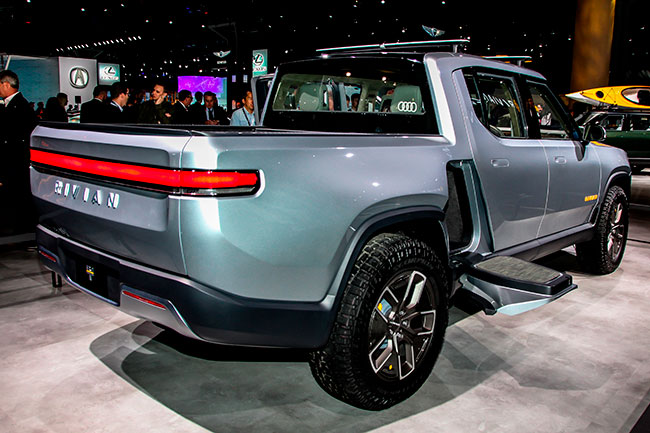The popularity of the pickup truck in North America and the potential electric trucks being developed could help pave the way for wider EV adoption.

Most of the world’s major automakers, and more than a few startups, have now committed to the development of electric vehicle powertrains for their mass-market vehicles, in the long-term, at least.
That is particularly the case for those with significant markets in China and Europe, where both the regulatory pressures for, and the public acceptance of EVs, are well ahead of their current status in North America.
So what about North America? What will it take, beyond tighter regulations, and the fringe-market cult appeal that has made Tesla successful, to convince the broad spectrum of North Americans that EVs are feasible and desirable alternatives to the status quo?
Perhaps it will be the most North-American of all vehicles — the pickup truck!
Pickups are the single vehicle category that most clearly differentiates the North American market from those in the rest of the world. Almost one in every five new vehicles sold (18.5 per cent of the Canadian market in 2019) on this continent is a pickup truck. Through the first half of 2020, with sales distorted by the COVID-19 pandemic, pickups accounted for nearly 30 per cent of the market in Canada.
What better way then to bring EV technology into the North American mainstream than in pickup trucks? But is the technology suitable for the application?
A lot of companies are betting that it is. And there is some sound logic behind that thinking. As much of their marketing hype keeps telling us, trucks are all about load-hauling torque. And if electric motors have one defining attribute, it is instantaneous torque production, which is at peak as soon as the motor starts to turn. Yes, it goes downhill from there, but that off-the line grunt serves the truck application well — at least in terms of their workhorse status.
For typical passenger car use, overall range remains one of the key tipping points for EV adoption by many potential buyers. In real commercial workhorse service, however, pickup trucks tend more to short trips than long hauls, which reduces the importance of range in the buying equation.
Ditto for charging time and source limitations, another key factor for many customers. In many commercial applications, trucks tend to have their own home-base where they can return and potentially be recharged overnight, reducing the importance of that consideration.
Price, of course, remains a key factor — one that does not yet favour electrification, primarily because of battery costs. EVs still tend to be considerably more expensive than parallel vehicles with conventional powertrains. The bigger the loads they have to haul, the more battery power will be required, which increases weight. That means more heavy-duty supporting structure is required, which costs more still. It’s not a simple challenge to overcome.
Nevertheless, it’s one that several manufacturers are well on the way to addressing, with as many as eight, or more, electric-powered pickup trucks planned to come to market in the next few years — and some by the end of 2021, if they remain on schedule.
The most publicized of those, of course, is the outrageous Tesla Cybertruck, seemingly designed more for shock appeal than serious truck service. Its preliminary specifications are as extravagant as its appearance but, as is usually the case with Tesla, we will have to wait for a production version to find out what is real.
To meet that competition, the next-generation Ford F-150, still the world’s best-selling vehicle overall, will offer an electric version as well as conventional powertrains. And General Motors is already publicizing an EV sub-brand for GMC by resurrecting the Hummer nameplate.
In terms of a real challenge from those outside the traditional pickup-truck providers, the Rivian may be the most serious. Not only was it among the first to be made public — it appeared to be a thoroughly engineered product before it did so. It is also well financed by credible players that include Ford and Amazon. And it already has an assembly plant — the former Mitsubishi factory in Normal, Illinois.
Perhaps less certain than Rivian but still a potential player is Lordstown Motors, which took over the defunct GM assembly plant in Lordstown, Ohio. Its proposed Endurance pickup truck is said to have four individual hub motors.
There is also Tesla arch-rival Nikolai, both named for the same iconic inventor, which promises to compete with both battery and fuel-cell versions of its Badger pickup, as well as at the big-rig level.
Plus, other putative entries from lesser-knowns, Atlis and Bollinger, the pickup truck market is about to get very interesting.












